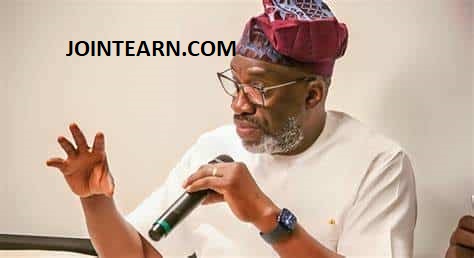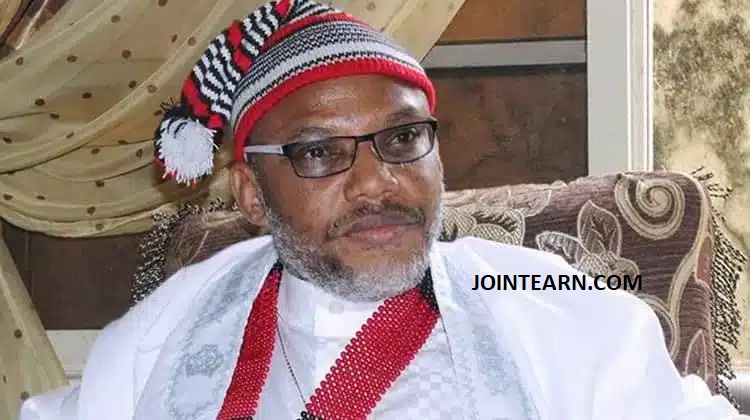The Inter-Party Advisory Council (IPAC) has intensified its push for the reservation of 74 seats for women in Nigeria’s National Assembly, ahead of the 2027 general elections. The call comes as part of broader efforts to promote gender equality and empower women in political leadership positions. The proposal, if adopted, would significantly increase women’s representation in the legislative arm of government, addressing longstanding calls for greater inclusivity in Nigerian politics.
At a recent meeting held in Abuja, IPAC members discussed the importance of gender parity in governance and the need for constitutional amendments to secure a more substantial role for women in the country’s political processes. The council’s push for the reserved seats is framed as a critical step towards fulfilling Nigeria’s commitments to international frameworks on gender equality, such as the United Nations Sustainable Development Goals (SDGs) and the African Union’s Gender Policy.
Aiming for a 35% Women Representation Target
The proposed allocation of 74 reserved seats is designed to meet the widely advocated target of 35% women representation in Nigeria’s National Assembly. Currently, women hold only about 4% of the seats in both the Senate and the House of Representatives, a figure that many civil society organizations and political analysts have described as unacceptable given the country’s demographic realities.
IPAC’s position is that the inclusion of women in decision-making roles is not only a matter of social justice but also essential for Nigeria’s democratic growth and development. “Women make up more than half of Nigeria’s population, and yet their voices are vastly underrepresented in the corridors of power. It is time to change that,” said IPAC Chairman, Dr. Yemi Akinwumi, during the meeting. “We believe that reserving 74 seats for women in the National Assembly is a concrete step toward correcting this imbalance.”
The Need for Legislative Reform
For the proposal to become a reality, it will require significant legislative reforms, including constitutional amendments. Under the current system, the National Assembly seats are allocated based on the principle of equality, without specific quotas for women. However, advocates for gender equality in politics argue that this approach has led to systemic underrepresentation of women, despite their active participation in other sectors of society.
Dr. Akinwumi further highlighted that a constitutional amendment would be the most effective way to ensure that the reserved seats are institutionalized, thereby ensuring that women have a lasting presence in legislative affairs. He also called on the leadership of both the Senate and the House of Representatives to prioritize the issue of women’s political inclusion as part of their legislative agenda.
“Changing the narrative requires not just political will, but also a commitment to addressing the institutional barriers that limit women’s access to political office. These barriers, ranging from gender bias to lack of financial support for female candidates, need to be dismantled,” Akinwumi said.
A Step Toward Gender Equality in Politics
While the idea of reserved seats for women is gaining traction within political circles, the proposal is not without its critics. Some argue that women should be elected on the same basis as men, with no special treatment or quotas. Others believe that while gender equality is important, it should not come at the expense of merit or electoral integrity.
However, IPAC and other gender advocacy groups counter that the existing political system often favors male candidates, especially in a patriarchal society like Nigeria. “Women have long been marginalized in political processes, and this proposed quota system is a necessary intervention to ensure that they have equal access to political power,” said Zainab Ahmed, a member of the Gender Equality Coalition, a group supporting the IPAC proposal.
Research has shown that women in Nigeria face numerous challenges when contesting for political office, including societal prejudices, cultural expectations, limited financial resources, and a lack of party support. Consequently, many women are discouraged from entering politics, leading to their underrepresentation in decision-making roles.
International and Domestic Support for Gender Parity
The push for greater female representation in Nigeria’s National Assembly comes at a time when several countries across the globe are taking similar steps toward achieving gender equality in politics. In Rwanda, for example, women hold a remarkable 61% of seats in the lower house of parliament, a feat largely attributed to intentional policies that reserve a portion of seats for female candidates.
Within Nigeria, the call for women’s inclusion in governance has received widespread support from civil society organizations, youth groups, and women’s rights activists. Many believe that having more women in the National Assembly would not only promote gender equality but also help address issues that disproportionately affect women, such as maternal health, education, and gender-based violence.
The Nigerian government has also made several commitments to gender equality in its national development agenda. In recent years, the country has seen incremental improvements in women’s participation in governance, particularly at the state and local government levels. However, critics argue that these gains have been too slow and that a more robust framework is needed to fast-track progress.
The Role of Political Parties
Political parties also have a crucial role to play in ensuring that more women are elected to public office. The lack of female representation in the National Assembly has been partly attributed to the limited support for female candidates within political parties. IPAC has urged political parties to adopt internal measures that encourage the nomination of women for key positions, especially in winnable constituencies.
According to Dr. Akinwumi, IPAC is also working with various political parties to ensure that the 2027 elections see a significant increase in the number of women candidates. “It is not just about reserving seats but also about creating an enabling environment where women can compete on an equal footing with men,” he said.
Conclusion
As Nigeria prepares for the 2027 general elections, the call for 74 reserved seats for women in the National Assembly continues to gather momentum. If adopted, the proposal could pave the way for a more inclusive and equitable political system in the country. However, the success of this initiative will largely depend on the political will of lawmakers, the support of key political stakeholders, and the active participation of women in the electoral process.
IPAC’s advocacy for gender parity in governance reflects a broader movement toward social justice and inclusivity, underscoring the vital role women must play in shaping the future of Nigeria. With continued momentum and support, the 2027 elections may prove to be a turning point in Nigeria’s quest for true gender equality in politics.












